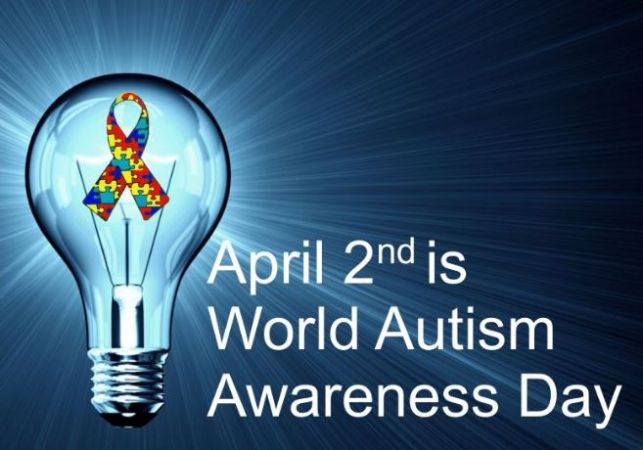
April 2nd is globally observed as the World Autism Awareness Day. Many people do not know the real problems of this disease. Every year they have some or the other themes, and this year the theme is "Empowering Women and Girls with Autism"
So to spread an awareness we will provide you with some information about Autism so that, if anyone near you is suffering from this problem, you can help them immediately.
What is Autism?
Autism spectrum disorder impacts the nervous system. It affects the overall cognitive, emotional, social and physical health of the affected individual. The range and sharpness of symptoms can vary widely. Common symptoms include difficulty with communication, difficulty with social interactions, obsessive interests, and repetitive behaviours. Early recognition, as well as behavioural, educational and family therapies, may reduce symptoms and support development and learning.
People may experience:
*Behavioral: Inappropriate social interaction, poor eye contact, compulsive behaviour, impulsivity, repetitive movements, self-harm, or persistent repetition of words or actions
*Developmental: Learning disability or speech delay in a child
*Cognitive: An intense interest in a limited number of things or problem paying attention
*Psychological: Unaware of others' emotions or depression
*Also common: Anxiety, change in voice, sensitivity to sound, or tic
According to the experts, "The biggest issue with autism still remains at the grassroots level. Patients need social acceptance and intervention at an early stage."
"If a child is not making eye contact while speaking or not responding while being called by name or to gestures then a doctor should be consulted immediately," he added.
A child with autism is given a sensory diet comprising various therapeutic activities. It can enhance his participation in school and interaction with family and friends. What the child needs most is the time from his mother, father to make him feel secure and independent. Screen time (use of electronic devices such as TV, mobile, tablets) should be kept negligible and the child should be given toys, books, and interactive home-based situations.
Bijal Srivastava, a paediatrician at Dr L H Hiranandani Hospital, said in the present era, a phenomenon called 'virtual autism' has been identified where children who are given more exposure to screen time are prone to develop autism-like symptoms which reverse on stopping the use of such devices.
The expert added, "These devices have a negative impact on the developing brain of an infant by providing an exciting world of colours, sound, images. Excess screen time also adversely affects a diagnosed autistic child,"